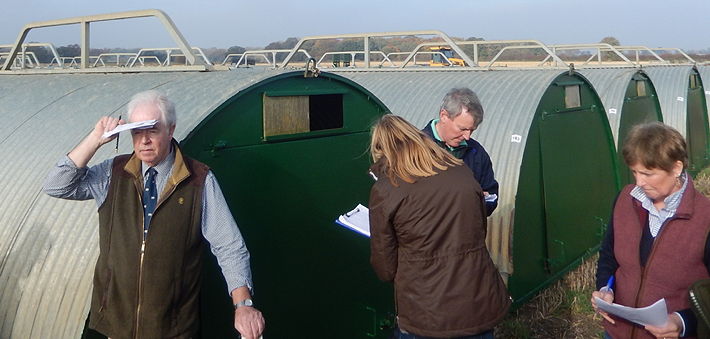News of the Prime Minister’s abdication on Thursday has done nothing to help the UK pig industry (which is not a surprise) with a stronger pound putting downward pressure on pig meat values and certainly doing us no favours as far as the pig meat import/export balance is concerned.
However, looking on the positive side it was good to see the SPP continue to rise by a further 2.49p to stand at its highest point yet of 188.88p.
Despite reports of lower pig numbers being available across the EU this seems to have had little impact as far as the latest German producer price is concerned which remains stuck at 1.85 EUR, unfortunately there are still no real signs yet of a long awaited pig price rally filtering through the system.
UK weekly contribution prices have in the main stood on with the leading abattoir players generally anchored between 190p/kg at the top and 173p/kg at the bottom which in school report terms “could do better”.
Despite BBQ weather, the situation for some of the smaller fresh meat wholesalers has also remained negative and demand is reported to be ‘fickle’ with spot bacon prices generally in and around 160p – 175p/kg and more for regular suppliers in some instances, but still a country mile below where prices need to be to remove much of the red ink from producers’ bank statements.
Following all of the shenanigans in No. 10 (and No. 11) Downing Street, the latest value of the Euro has taken a hammering from 86.30p last week to 84.70p today.
Unfortunately, the improvement in the value of the Pound has filtered through to cull sow prices which have eased by a penny in most cases and now stand between 47p and 51p/kg.
Weaner values are continuing to reflect recent rises in the SPP with reports that 7kg RSPCA Assured piglets are in some cases now between £44-£47.50/head, but from the finishers’ point of view these figures are unsustainable due to the very high ongoing cost of production figures which the whole of the UK pig industry has been saddled with.
Until the situation changes, the result will be that more breeding and finishing herds could be heading to the exit door at a time when some glimmers of hope are appearing on the horizon, but unfortunately for many it is a case of too little too late.
The value of feed ingredients remains extremely volatile with ex farm spot UK feed wheat for the past seven days averaging £239.50/t compared with the latest feed wheat futures prices quoted at £277/t for September delivery. Feed barley prices for September delivery are £260/t but with several question marks at the same time over future values.
Protein prices have recently followed a slightly more stable track with Hipro soya for August – October delivery quoted at £483/t and £441/t for May 2023. The latest rapemeal futures prices are indicating August – October at £273/t with longer months looking slightly more expensive with November 2022 – January 2023 at £282/t.
And finally, recent UK data underlines a worrying decline in the size of the UK pig herd which is backed up by big drops in sow numbers and AI usage confirming that UK pig producers are being forced to cut back and in some cases cull complete herds while production costs remain completely unsustainable at over 244p/kg.
At the same time, unfortunately the worldwide commodity markets are continuing to resemble an extremely expensive casino rather than a stable trading platform and unless there is a swift end to the Russian invasion of Ukraine, this trend is likely to continue for the foreseeable future.
And finally finally, added to this grim news is the chaotic situation in Downing Street at a time when the pig industry has more than enough on its hands coping with its current financial situation and the sooner HMG returns to normal the better.




